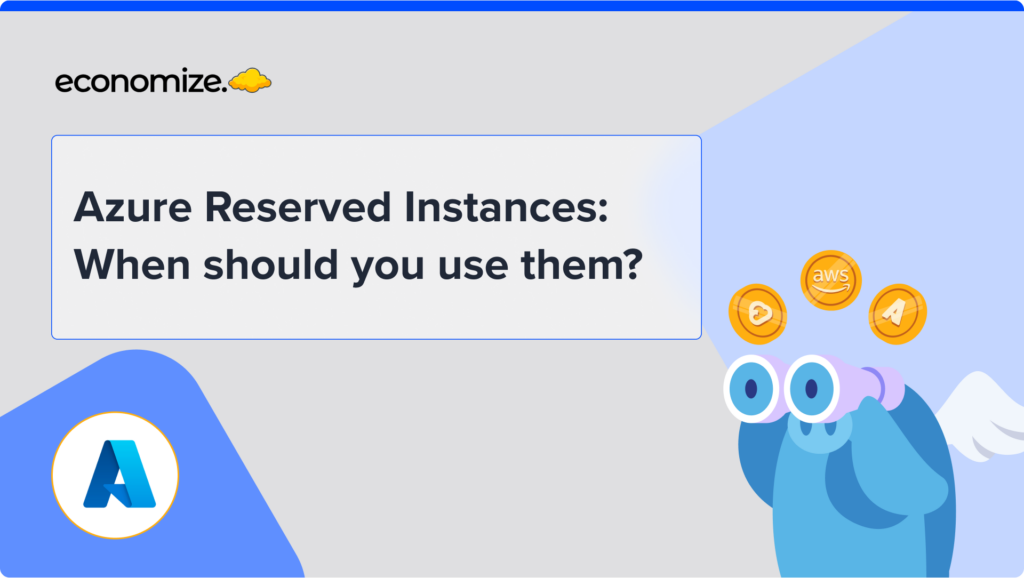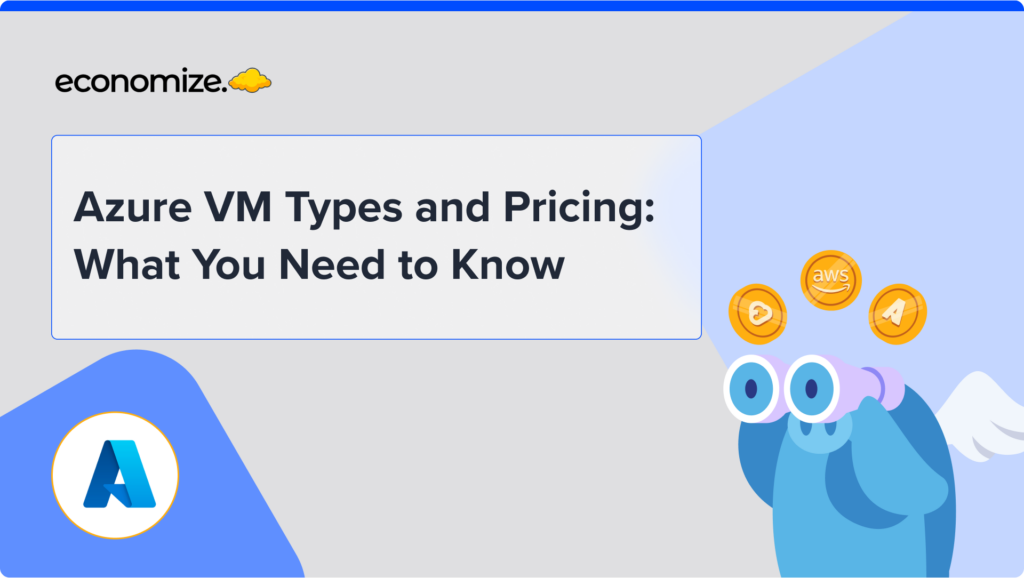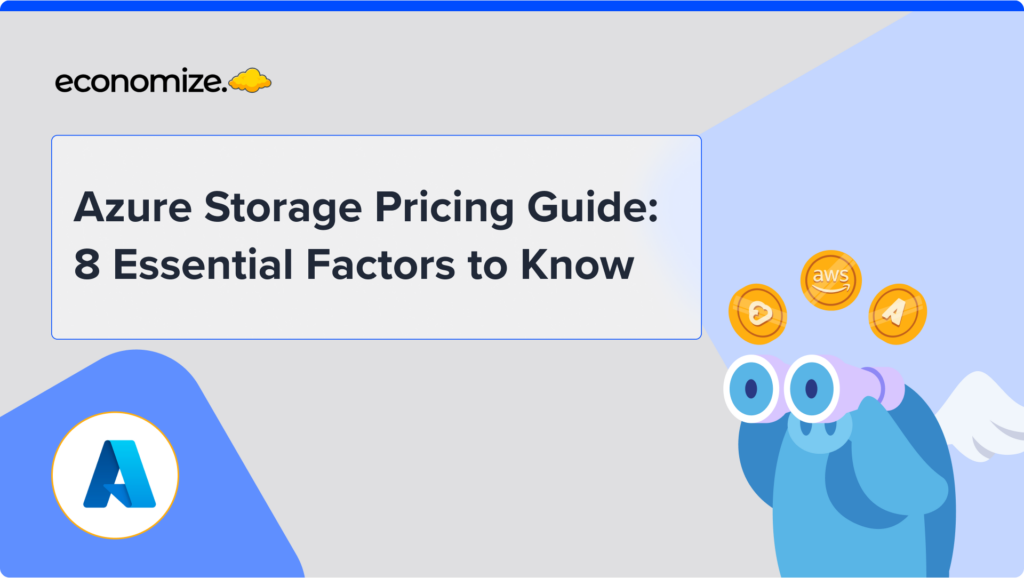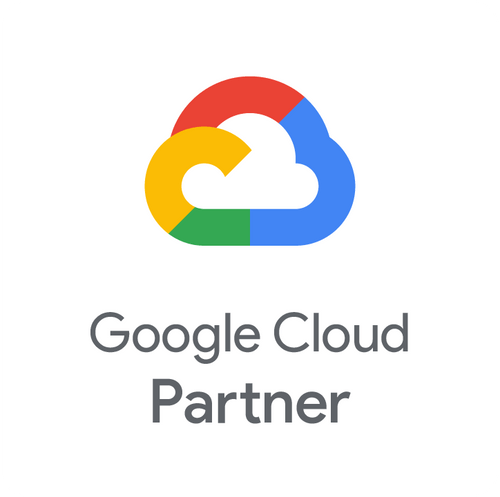For any web application, a domain name is a critical aspect, acting as the online address where users can find and access your application, thereby providing global reach. Thus, efficient management of domain names and traffic routing is essential for any business. Amazon Route 53 is a scalable and highly available DNS web service that helps you manage domains and direct internet traffic reliably. This guide explores how Amazon Route 53 functions, its working, Amazon Route 53 pricing, and best practices to maximize the benefits of this robust service.
What is Amazon Route 53?

Amazon Route 53, provided by AWS, is a scalable and highly available DNS service. It converts user-friendly domain names like www.economize.cloud into IP addresses for your web servers, ensuring smooth customer access. But Route 53 offers more than just DNS services. It also includes domain registration, DNS management, and health checks, making it an all-encompassing tool for managing your online presence. Be it handling domain registrations, updating DNS records, or checking the health of your web services, Amazon Route 53 provides the essential tools and dependability you need.
How AWS Route 53 Manages DNS for Your Applications?
Amazon Route 53 is a scalable and highly available Domain Name System (DNS) web service designed to route end-user requests to internet applications. You can use AWS. Route 53 to perform three main functions in any combination: domain registration, DNS routing, and health checking.
Register Domain Names
Every website requires a unique name. Amazon Route 53 not only helps you register a domain name for your website or application but also ensures this crucial step in establishing your online presence is seamless and efficient. This makes getting your site up and running much easier.
Route Internet Traffic to Your Domain
When users type your domain name (like example.com) or subdomain (like acme.example.com) into their web browser, Amazon Route 53 plays a crucial role in connecting them to your website or web application. This ensures they reach the right resources seamlessly.
Check the Health of Your Resources
Amazon Route 53 is capable of sending automated requests to your resources, including web servers, to confirm they are accessible, available, and working properly. If a resource fails, you will get alerts and can redirect traffic from those problematic resources.

Key Capabilities of AWS Route 53 for DNS Management
In addition to being a Domain Name System (DNS) web service, AWS Route 53 offers several advanced features such as,
- Route 53 Resolver: Route 53 allows you to set up recursive DNS for your Amazon VPCs across AWS Regions, VPCs in AWS Outposts racks, or any on-premises networks. You can establish conditional forwarding rules and endpoints to handle custom names from Route 53 private hosted zones or your own DNS servers.
- Amazon Route 53 Resolver on Outposts Endpoints: Connect the Amazon Route 53 Resolver on your Outposts racks with DNS servers in your on-premises data centers via Route 53 Resolver endpoints. This ensures smooth DNS query resolution between the Outposts racks and your on-premises resources.
- Route 53 Resolver DNS Firewall: Protect your recursive DNS queries using Route 53 Resolver. Set up domain lists and design firewall rules to filter outbound DNS traffic. This approach ensures that only permitted domains are accessed, adding an extra layer of security to your network.
- Traffic Flow: Route 53 simplifies and reduces the cost of global traffic management. It enables you to direct end users to the best endpoint for your application by evaluating factors like geo proximity, latency, health, and more.
- Amazon Route 53 Profiles: Using Route 53 Profiles, you can effortlessly manage and apply DNS settings across numerous VPCs and different AWS accounts, simplifying the process of DNS management.
Understanding Amazon Route 53 Pricing: Key Factors to Consider
Understanding Route 53’s pricing is crucial for effective cost management and budgeting of your AWS infrastructure. The service’s pricing encompasses various components, each caters to specific functionalities within the DNS and domain management spectrum. Let’s break down the key elements of Route 53’s pricing structure to give you a comprehensive overview of what you can expect to pay for when using this service.
- Managing hosted zones: There is a monthly fee for each hosted zone managed with Route 53.
- DNS query charges: Each DNS query incurs a charge, except for queries to Alias A records mapped to services like Elastic Load Balancing, CloudFront, Elastic Beanstalk, API Gateway, VPC endpoints, or S3 website buckets, which are free.
- Domain registration: An annual charge applies to each domain name registered or transferred through Amazon Route 53.
Other pricing factors in Route 53 include,
Authoritative DNS Charges
When managing your domain’s DNS settings, AWS Route 53 provides a scalable and cost-effective solution. Here’s a brief overview of the costs associated with hosted zones, records, and DNS queries to help you budget effectively.
Hosted Zones and Records: A hosted zone includes up to 10,000 records. If you exceed this limit, an additional charge of $0.0015 per record per month applies. If your requirements exceed 500 hosted zones or 10,000 records per hosted zone, you should contact AWS for customized pricing.
AWS charges for hosted zones and records are as follows:
| Hosted Zones | Price |
|---|---|
| First 25 hosted zones | $0.50 per zone per month |
| Additional hosted zones | $0.10 per zone per month |
| Hosted zone creation charge | Charged at creation and first day of each month |
| Deletion within 12 hours | No charge (queries still incur charges) |
Records: For records exceeding this limit (ie. beyond 10,000 records):
| Records | Price |
|---|---|
| Each record beyond 10,000 | $0.0015 per record per month |
DNS Queries: DNS query prices vary based on the type of query and are prorated. Queries on private hosted zones are free, but public-hosted zones incur charges:
| Query Type | First 1 Billion Queries | Over 1 Billion Queries |
|---|---|---|
| Standard Queries | $0.40 per million queries | $0.20 per million queries |
| Latency-Based Routing Queries | $0.60 per million queries | $0.30 per million queries |
| Geolocation/Geoproximity Queries | $0.70 per million queries | $0.35 per million queries |
| IP-Based Routing Queries* | $0.80 per million queries | $0.40 per million queries |
No fees are charged for storing up to 1,000 IP (CIDR) blocks. Above this limit, storage incurs $0.0015 per month (prorated hourly) for each additional IP block. Queries for mismatched domain/subdomain names or record types, and queries for non-existent records, are charged at standard rates.
Alias Queries: Alias records allow you to route traffic to AWS resources without incurring query charges, provided the alias target is an AWS resource (e.g., Elastic Load Balancers, CloudFront distributions, etc.) and not another Amazon Route 53 record.
Free DNS Queries:
- Domain/subdomain name and record type match an alias record.
- The alias target is an AWS resource.
Charged DNS Queries:
- An alias target is a non-alias record in the same hosted zone.
API Calls Between Route 53 and Amazon S3: Amazon Route 53 console can generate API calls to Amazon S3, such as listing buckets. These calls may incur charges under your S3 billing.
Authoritative DNS Query Logs: There is no charge for authoritative DNS query logs themselves. However, enabling DNS query logging incurs Amazon CloudWatch charges for data ingestion, storage, and analysis in the US East (Virginia) Region.
Traffic Flow:Traffic Flow policies are charged based on policy records. Per policy record per month costs around $50.00.
Health Check Costs
AWS Route 53 offers various health check options to monitor your endpoints. Here’s a concise overview of the pricing.

Free Health Checks for AWS Endpoints: Customers can create up to 50 health checks for AWS endpoints within the same AWS account at no cost. This offer applies to both new and existing customers. Usage beyond these 50 health checks incurs standard charges.
Health Check Pricing differentiates between AWS and non-AWS endpoints:
| Health Check Type | AWS Endpoints | Non-AWS Endpoints |
|---|---|---|
| Basic Health Checks | $0.50 per check/month | $0.75 per check/month |
| Optional Features | $1.00 per feature/month | $2.00 per feature/month |
These prices are prorated for partial months. Basic Health Checks include standard, calculated, and metric-based checks. Optional Features include HTTPS checks, string matching, fast request intervals, and latency measurements.
Special Considerations
- Health checks for Elastic Load Balancers and Amazon S3 buckets configured as website endpoints are free.
- For more than 200 health checks, contact AWS.
An AWS endpoint is any resource running within AWS (e.g., an EC2 instance) linked to the same account as the health check. Understanding these costs can help you manage your Amazon Route 53 health check expenses effectively.
Resolver Costs
AWS Route 53 Resolver endpoints facilitate DNS query resolution between on-premises resources and VPCs or AWS Outposts racks. Here’s a concise look at the associated costs.

Resolver Endpoints: You can configure Amazon Route 53 Resolver endpoints, with or without DNS over HTTPS (DoH), for DNS resolution. Each endpoint requires two or more IP addresses, corresponding to Elastic Network Interfaces (ENIs). An outbound endpoint can be used by multiple VPCs in the same region.
| Service | Price |
|---|---|
| Elastic Network Interface (ENI) | $0.125 per ENI per hour |
Recursive DNS Queries: Charges apply only to queries passing through a Route 53 Resolver endpoint.
| Queries | Price |
|---|---|
| First 1 billion queries/month | $0.40 per million queries |
| Over 1 billion queries/month | $0.20 per million queries |
Resolver Query Logs: Amazon Route 53 does not charge for Resolver query logs, but you will incur charges from Amazon CloudWatch, Amazon S3, or Amazon Kinesis Data Firehose based on your chosen log destination.
Resolver DNS Firewall: Charges apply for DNS queries originating from VPCs with firewall rule group associations and those traversing inbound Resolver endpoints from on-premises networks.
| DNS Queries | Price |
|---|---|
| First 1 billion queries/month | $0.60 per million queries |
| Over 1 billion queries/month | $0.40 per million queries |
Domain Names in Rule Groups: A fee is charged for each domain name in a domain list within a rule group. Managed domain lists do not incur this fee, but DNS queries inspected against these lists are charged. Using managed domain lists in your firewall rules also incurs charges for the DNS queries but not for the domain names within the lists.
| Domain Names | Price |
|---|---|
| Per domain name/month | $0.0005 (prorated hourly) |
Application Recovery Controller Cost
AWS Route 53 Application Recovery Controller ensures your applications are ready for disaster recovery. You are charged based on two factors: readiness checks and clusters, with no upfront fees.
Readiness Checks: Readiness checks audit your resources across Availability Zones or Regions to ensure they are prepared for recovery. Each configured readiness check costs $0.045 per hour. For example, if you have two readiness checks (e.g., one for Auto Scaling Groups and another for DynamoDB tables), you will be charged $0.09 per hour.
| Service | Price |
|---|---|
| Readiness Check | $0.045 per hour |
Clusters: Clusters consist of redundant regional endpoints for managing routing controls. Each cluster costs $2.50 per hour, with a maximum of two clusters allowed.
| Service | Price |
|---|---|
| Cluster | $2.50 per hour |
Additional Features that incurs Route 53 Costs
AWS Route 53 offers various services related to domain management, DNSSEC, and Route 53 Profiles. Let’s breakdown the charges associated with these additional features.
Domain Names: Pricing for domain names varies by Top-Level Domain (TLD). Domain names are registered annually, and prices are listed per domain per year. Currently, there are no volume discounts for domain registrations. Promotional credits cannot be used for domain name fees. The default limit is 20 domain registrations per account
DNSSEC: Enabling DNSSEC signing on public hosted zones and validation for Route 53 Resolver is free. However, enabling DNSSEC incurs AWS Key Management Service (KMS) charges for storing and using the private key. You can use a single customer-managed KMS key across multiple public-hosted zones.
Route 53 Profiles: Route 53 Profiles pricing is based on Profile-VPC associations.
| Service | Price |
|---|---|
| Base tier (up to 100 associations) | $0.75 per AWS account per hour |
| Beyond 100 associations | $0.0014 per Profile-VPC association per hour |
Conclusion
Amazon Route 53 is a highly capable and adaptable DNS web service, featuring a wide range of tools for domain registration, DNS management, and health checking. Whether you’re developing a simple site or managing an intricate web application, Route 53 offers the resources needed to ensure high availability, reliability, and excellent performance. By following best practices and making use of Route 53’s advanced features, you can strengthen your web presence and provide an improved user experience for your audience.
How can we help?
Are your cloud bills reaching sky-high levels? Don’t let cloud costs weigh you down anymore. With Economize, you can slash your cloud expenditures by up to 30% effortlessly. Book a free demo with us today and discover how we can help you start saving in as little as 10 minutes.








